by Dan PhillipsPastor David Wayne (the
Jollyblogger) just shared
Ten Things I Think I Think About Marriage and Marriage Counseling. If I'd written it, my dear wife would say it was too long, and (if I'd written it) she'd be right. But I didn't, so....
Some of Pastor Wayne's more memorable assertions, bolding added:
I think I think we focus too much on marriage and work too hard on our marriages to really be of any help.
...But a reading of the New Testament doesn't reflect an overwhelming concern with marriage and the family on the part of it's [sic] author (God!).
...Almost every serious marital conflict I get involved in eventually becomes a contest of wills, and the struggle is over whose "will" will prevail. This is a contest to rule.
...I think I think that we could improve many marriages if we could treat one another as enemies. In fact, I think that in many cases the relationship could improve immeasurably if Christians could elevate their spouse to that of an enemy.
Biblically, the Christian is called to love his/her enemy. According to Matthew 5 the Christian doesn't retaliate against his enemy, gives twice what the enemy asks, works twice as hard for the enemy as the enemy wants and blesses the one who treats them badly.
I'm thinking that if I weren't a Christian I would want to be the enemy of a Christian, because that's a pretty sweet deal relationally.
...In my pre-marital counseling and marriage counseling I try to tell people that there is no special category of counsel called "marital counseling" [ — ] it's all about basic Christian discipleship. This takes me back to my first point where I say we are missing the boat in marriage and marriage counseling.
I hope that whets your appetite. But do note,
they're all out of context. Do not comment on Wayne's thoughts until you
read the whole!
Now, here's what I think I think about some of what David thinks he thinks.
 First
First, I think his central point is a really good point. Here's how I'd put it:
there isn't a marriage failure that isn't also (and more fundamentally) a failure of discipleship, a failure as a Christian. I have thought that more times than I can possibly count, wanted to say, "You don't get this. It isn't simply that you need to be a more faithful husband/wife. You need to be a more faithful
Christian. This isn't just about you and Mary/Bob. This is about you and Jesus."
Or, rephrased once again, you
cannot legitimately say, "Yeah, I'm not much of a husband — but I'm a
spankin' good disciple of Christ!" Nuh-uh.
Second, of course I think one of the ten things David thinks should be the big thing I
know I think. I laid it out over two years ago in
Pastoral marriage counseling: What if? Don't know whether David ever read it. Hope you do.
In that (among other things), I said:
What if, when the pair began to trade accusations, [the counseling pastor] held up his hand, and said, "Not yet. We can get back to that. What I want you to tell me now is what Jesus Christ means to you. Bob? You first. Then you, Tina."
And then I suggested that the pastor assign some directed Bible study on the nature of marriage and the nature of vows, have the couple bring in their marriage vows, and work from
that basis. As
Christians who've made sacred, binding, lifelong
promises.
That goes right along with what I think David's main point is.
Pastor Wayne's other point (not mine), in my own words, is that we can mess up marriage by focusing on marriage as if it were a special, detached
thing, rather than simply a facet of discipleship. It's equally an error to treat it as if it's unrelated,
and to treat it as if it's everything. "
You shouldn't talk to your
husband that way" sometimes is equally "A
Christian shouldn't talk to
anyone that way"; as "
You shouldn't treat your
wife like that" sometimes is equally "A
Christian shouldn't treat
anyone like that."
So David is saying that if we focus on what should be central (loving God with everything, loving our neighbor as ourselves), that itself will improve our marriage.
I would, however, add this — and David can say for himself whether or not he agrees: it isn't pastorally wise to approach a troubled marriage and
just say, in effect, "Be better Christians and everything should work out fine." As simplistic as it sounds, there is truth
in that... but there's some important truth
missing, too.

I think of it as analogous to physical health. Anything I do that's good for my body is also good for my finger, my leg, my heart, my kidneys. But
if I develop a problem in one of those areas, I can't and shouldn't just ignore it, saying, "I'm not going to be distracted from doing what's good for my body, and throw my focus off onto something peripheral." When some
part of my body suffers, I need to do something for
that part, because it is a part of the whole.Now it may turn out that
B really is affected by neglect of
A. Maybe I'm having kidney stones because I never drink enough water. So I need to drink more water. That would be good for my whole body, and especially for my kidneys.
But, while I'm having kidney stones, maybe I need pain meds, or maybe I'll even need some sort of surgery.
HSAT, it's always good to be reminded: God's goal should be our goal, and His stated goal is that
Jesus Christ come to have
first place in all things (Colossians 1:18).
Including our marriages.

 eports out of India over the past week or so describe a dramatic increase in violence against Christians, mainly at the hands
eports out of India over the past week or so describe a dramatic increase in violence against Christians, mainly at the hands  of radical Hindus in the state of Orissa. The conflicts are to a large degree rooted in Hinduism's caste system and Hindu resentment over lower-caste people who have converted from Hinduism to Christianity.
of radical Hindus in the state of Orissa. The conflicts are to a large degree rooted in Hinduism's caste system and Hindu resentment over lower-caste people who have converted from Hinduism to Christianity.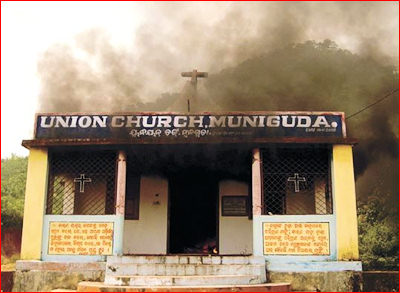


 andel, on one occasion, played the organ in a country church; and, at the close of the service, he gave a voluntary of such a sort that all the people lingered to hear it. The old organist [who usually played in that church] was indignant, and said, "Now, let that organ alone, you can't play the people out; let me do it."
andel, on one occasion, played the organ in a country church; and, at the close of the service, he gave a voluntary of such a sort that all the people lingered to hear it. The old organist [who usually played in that church] was indignant, and said, "Now, let that organ alone, you can't play the people out; let me do it."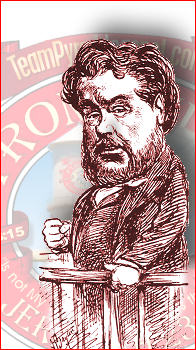 These progressive gentlemen certainly can play the people out. Their gifts of dispersion are amazing. Put them down in any warm-hearted Christian community, and see if they will not scatter and divide it; place them in any town you may select, and though they may be at first attractive (for some people are attracted by any novelty, however erroneous), yet, after a short time, there being no life, there will be no power to retain the people.
These progressive gentlemen certainly can play the people out. Their gifts of dispersion are amazing. Put them down in any warm-hearted Christian community, and see if they will not scatter and divide it; place them in any town you may select, and though they may be at first attractive (for some people are attracted by any novelty, however erroneous), yet, after a short time, there being no life, there will be no power to retain the people.

 was going to write a substantive post today. Then I decided instead just to link to a smattering of things that have puzzled, amused, intrigued, or appalled me lately. Here you go, in no particular order:
was going to write a substantive post today. Then I decided instead just to link to a smattering of things that have puzzled, amused, intrigued, or appalled me lately. Here you go, in no particular order:
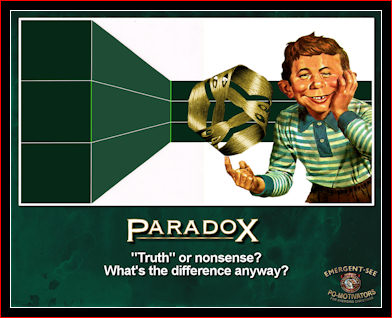

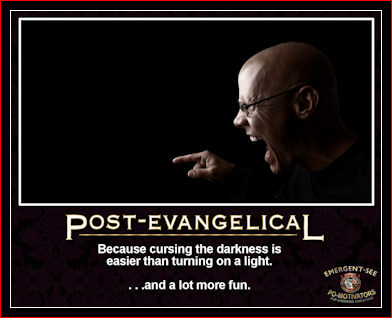

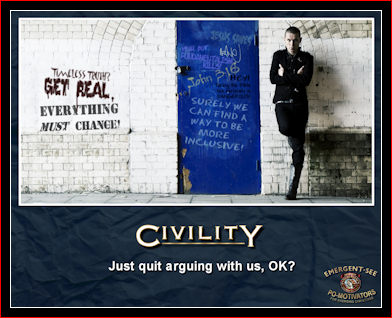







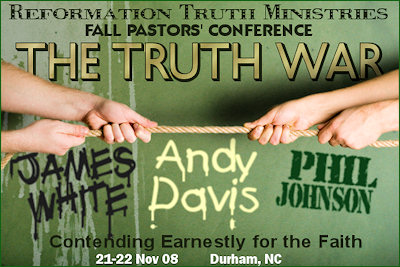



 New-model Christianity, or old-model heresy?
New-model Christianity, or old-model heresy?
 bout fifteen years ago, Christianity Today (February 19, 1990) published a major article describing several novel theological ideas that were (at the time) barely whispers among a handful of influential academic evangelical writers and theologians. Written by renowned Canadian theologian Robert Brow, the article was titled
bout fifteen years ago, Christianity Today (February 19, 1990) published a major article describing several novel theological ideas that were (at the time) barely whispers among a handful of influential academic evangelical writers and theologians. Written by renowned Canadian theologian Robert Brow, the article was titled  eet
eet  Allyson Felix, a neighbor of mine. Her dad,
Allyson Felix, a neighbor of mine. Her dad, 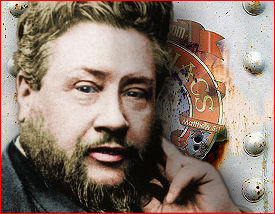

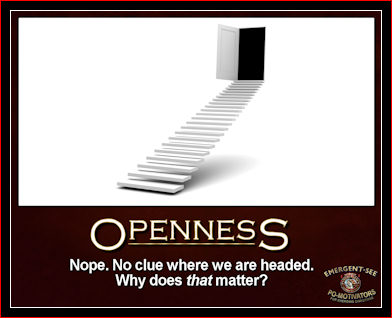
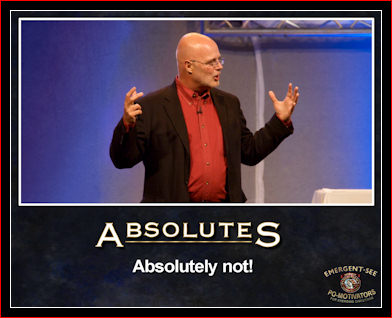

 ow is it that God inspired the Scriptures in such a way that every word—indeed, every jot and tittle—was what He determined?
ow is it that God inspired the Scriptures in such a way that every word—indeed, every jot and tittle—was what He determined? Every standard evangelical definition of inspiration would emphatically insist that God used the personalities, vocabularies, intellects, and learning of the individual authors—and we completely agree. Let's also stipulate that He did not employ dictation (except in a few cases where this is expressly stated).
Every standard evangelical definition of inspiration would emphatically insist that God used the personalities, vocabularies, intellects, and learning of the individual authors—and we completely agree. Let's also stipulate that He did not employ dictation (except in a few cases where this is expressly stated).













